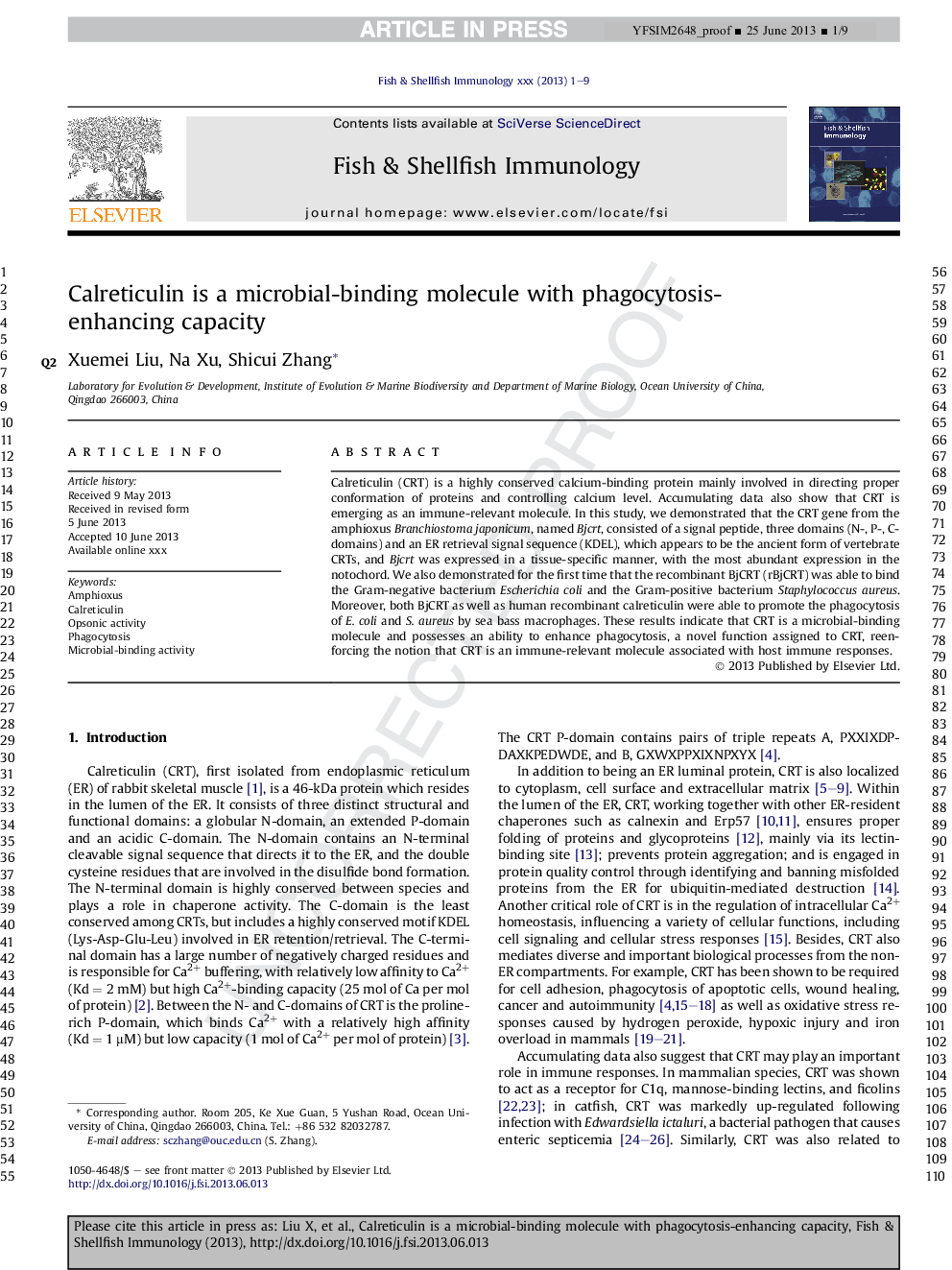| Article ID | Journal | Published Year | Pages | File Type |
|---|---|---|---|---|
| 10972048 | Fish & Shellfish Immunology | 2013 | 9 Pages |
Abstract
Calreticulin (CRT) is a highly conserved calcium-binding protein mainly involved in directing proper conformation of proteins and controlling calcium level. Accumulating data also show that CRT is emerging as an immune-relevant molecule. In this study, we demonstrated that the CRT gene from the amphioxus Branchiostoma japonicum, named Bjcrt, consisted of a signal peptide, three domains (N-, P-, C-domains) and an ER retrieval signal sequence (KDEL), which appears to be the ancient form of vertebrate CRTs, and Bjcrt was expressed in a tissue-specific manner, with the most abundant expression in the notochord. We also demonstrated for the first time that the recombinant BjCRT (rBjCRT) was able to bind the Gram-negative bacterium Escherichia coli and the Gram-positive bacterium Staphylococcus aureus. Moreover, both BjCRT as well as human recombinant calreticulin were able to promote the phagocytosis of E. coli and S. aureus by sea bass macrophages. These results indicate that CRT is a microbial-binding molecule and possesses an ability to enhance phagocytosis, a novel function assigned to CRT, reenforcing the notion that CRT is an immune-relevant molecule associated with host immune responses.
Related Topics
Life Sciences
Agricultural and Biological Sciences
Aquatic Science
Authors
Xuemei Liu, Na Xu, Shicui Zhang,
